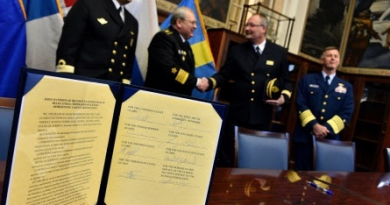Money for northern housing, mining, clean energy among Canada’s federal budget highlights
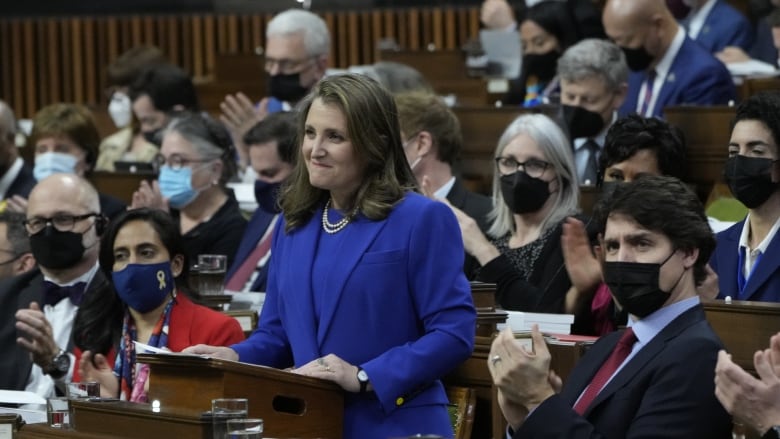
The federal government is promising more money for affordable housing in the North, the critical minerals industry, the High Arctic Research Station in Nunavut and a clean-energy project for Yukon, in its latest budget tabled on Thursday.
Other budget highlights are not specifically targeted to the North but could benefit northern communities, including support for Indigenous tourism businesses, funding to monitor and fight wildfires and train firefighting personnel, and student loan forgiveness for doctors and nurses working in rural and remote communities.
Federal Finance Minister Chrystia Freeland tabled a relatively thin 280-page budget — 500 fewer pages than last year’s document — that is much more focused on a few key areas than Liberal budgets of the recent past. The 2022-23 deficit projection is $52.8 billion — half of what it was last year.
Here are some of the highlights for the North.
Affordable housing
The cost and availability of housing has become a central issue for many Canadians, and the budget puts the matter front-and-centre. Some analysts are referring to it as a “housing budget,” as a third of all new spending in this budget — $10.1 billion — is directed at housing.
The government is promising $150 million over two years for affordable housing “and related infrastructure” in the North — $60 million each for the governments of Nunavut and the N.W.T., and $30 million for the government of Yukon.
“Canada’s Northern communities face unique housing needs due to higher construction costs, shorter construction seasons, infrastructure gaps, and the effects of climate change that are increasing,” the budget document reads.
The budget also specifies $565 million over five years to support housing in self-governing First Nations communities and $845 million over seven years to support housing in Inuit communities.
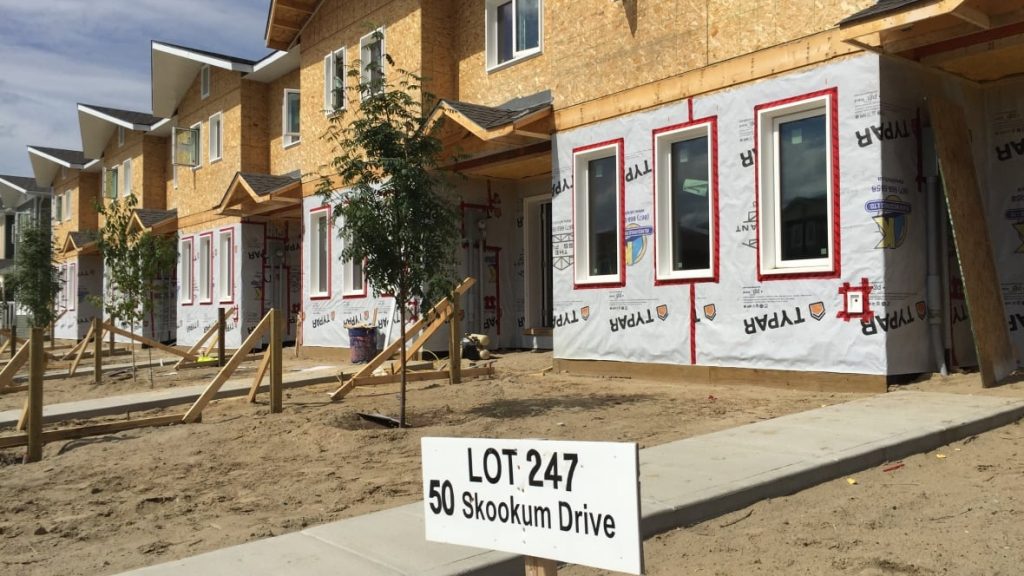
The Canada Mortgage and Housing Corporation will also receive $300 million over five years to co-develop and launch an urban, rural, and Northern Indigenous housing strategy.
The budget also includes many housing promises beyond just the North, including a crackdown on property speculators, an overall pledge to double the pace of new home construction in Canada, and a new tax-sheltered way for Canadians to save up to buy a home.
Critical minerals
The budget also commits up to $1.5 billion over seven years to support the critical minerals industry in Canada. Critical minerals are those deemed essential to Canada’s economic security and include northern resources such as copper, zinc, and rare earth elements, among others.
“Making these projects a less risky undertaking for companies will help grow both Canada’s critical mineral industry and secure the good resource jobs of the future,” the budget document states.
Funding will also go to Natural Resources Canada “to provide public access to integrated data sets to inform critical mineral exploration and development,” and offering a new tax credit for some mineral exploration work.
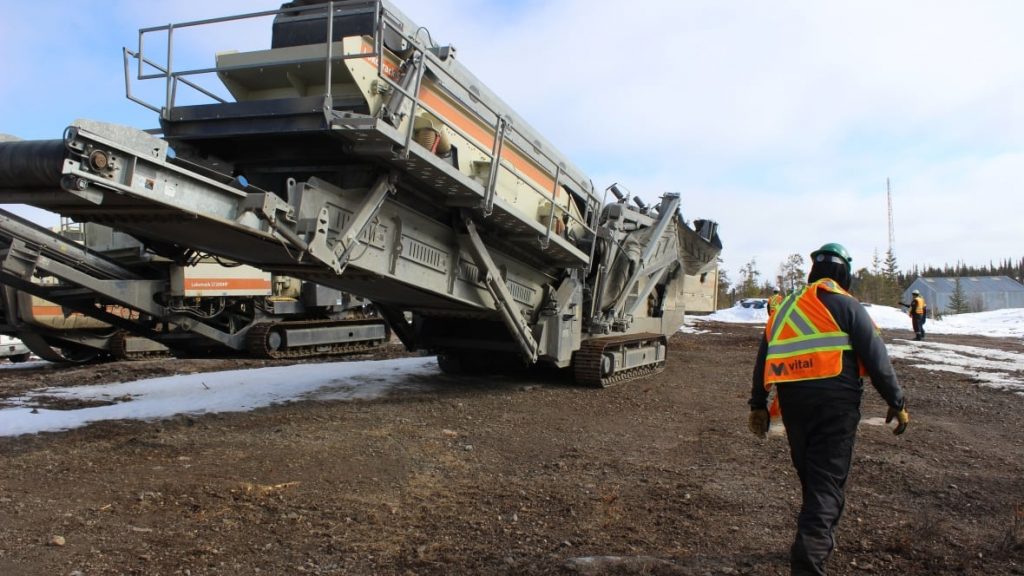
At least $25 million will go toward “early engagement and Indigenous communities’ capacity building to support their participation in the critical minerals strategy.”
The budget also proposes up to $40 million over eight years to Crown-Indigenous Relations and Northern Affairs Canada to support northern regulatory processes.
Clean energy for Yukon
More money has also been committed to a hydroelectric project in Northern B.C., that’s aimed at reducing Yukon’s reliance on diesel power. Over two year, $32.2 million will go toward the Atlin Hydro Expansion project.
The project, which will be built and owned by Taku River Tlingit First Nation citizens, would provide an additional eight megawatts of power to be fed into the Yukon grid. The project is still in the technical review stage.
The federal government previously committed $83.9 million to the project.
High Arctic Research Station
There’s also more money for the “completion and operation” of the Canadian High Arctic Research Station, in Cambridge Bay, Nunavut.
The cutting-edge research station, which officially opened in 2019, is focused on better understanding the impacts of climate change.
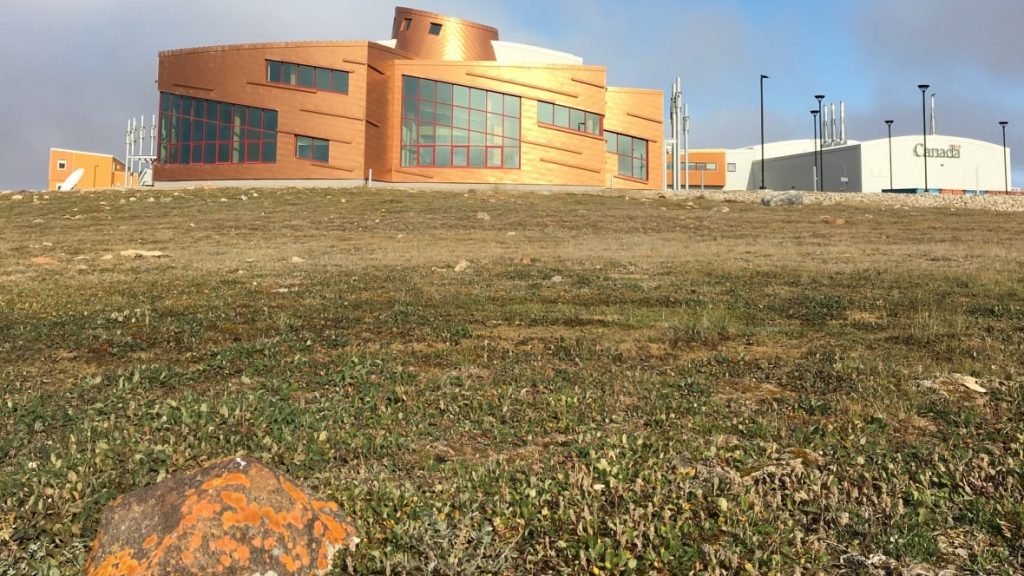
The 2022 budget commits $14.5 million over five years to the facility that’s designed to “strengthen Canadian leadership on Arctic issues.”
Fighting wildfires
The budget points to wildfires as a growing threat in many regions, citing B.C.’s devastating fires last summer that destroyed the town of Lytton.
“Canada is experiencing more frequent and more extreme wildfires and this trend will continue as the climate changes. The risk of wildfire is especially serious for remote and Indigenous communities and fires come with significant economic and environmental costs,” the budget document reads.
Natural Resources Canada will receive $269 million over five years to help provinces and territories buy equipment such as aircraft and vehicles. Funding will also go toward training 1,000 additional firefighters and incorporate Indigenous traditional knowledge in fire management.
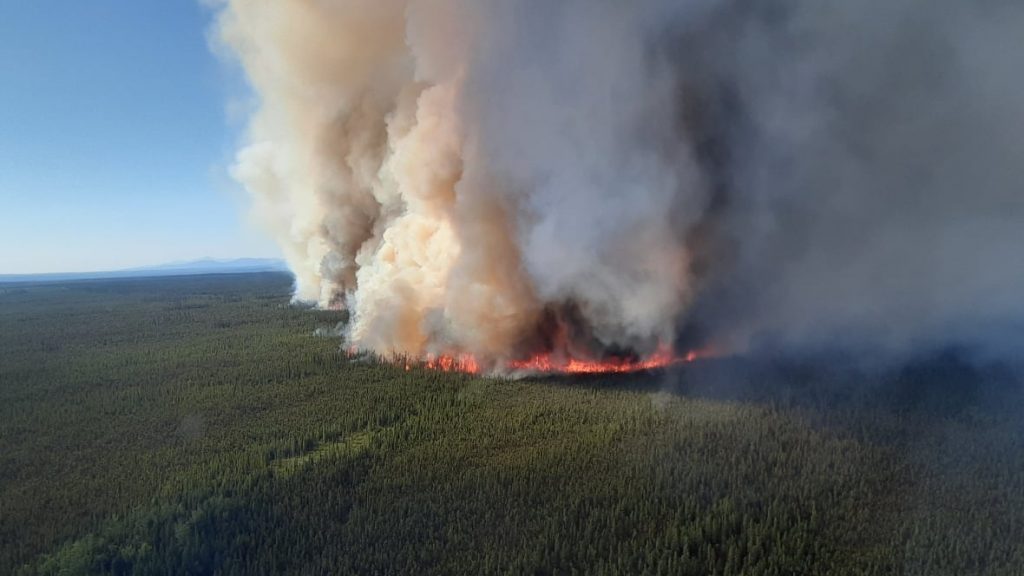
Residential school burial sites
The 2022 budget also commits new money toward initiatives to document, locate and memorialize burial sites at former residential schools. Crown-Indigenous Relations and Northern Affairs Canada will receive $209.8 million to increase financial support to communities doing that work.
Money will also go toward a new building for the National Centre for Truth and Reconciliation.
Other funding will go to Justice Canada, Public Safety Canada, Library and Archives Canada and Parks Canada for initiatives related to protecting and preserving unmarked burial sites, memorializing former residential schools sites, and preserving historic documents related to the administration of the federal Indian Day School System, “which will ensure survivors and all Canadians have meaningful access to them.”
Other spending
Some other 2022 budget initiatives relevant to the North include:
- $20 million over two years to help the Indigenous tourism industry recover from the pandemic.
- $4.8 million over two years for the Indigenous Tourism Association of Canada.
- $26.2 million toward forgiving student loans for doctors and nurses who practice in rural and remote communities.
- $19.6 million to support freshwater cleanup efforts across Canada, including the Mackenzie River.
- $5 million over five years to the Canadian Northern Economic Development Agency to support Indigenous economic development in the North.
- $87.3 million over three years to support implementation of Indigenous child welfare laws.
With files from John Paul Tasker
Related stories from around the North:
Canada: Arctic Security: Will Canada’s federal budget deliver for NORAD?, Eilís Quinn, Eye on the Arctic
United States: Budget cuts threaten transitional housing program in Alaska’s largest city, Alaska Public Media
Finland: Report highlights Finland’s top 5 housing problems, Yle News
Norway: From dirty coal mining to protected land, Norway expands national park on Svalbard, Thomas Nilsen, The Independent Barents Observer
Russia: Bolstered by battery boom, British mining company to dig nine new open pits in Russian Arctic, Atle Staalesen, The Independent Barents Observer
Sweden: UN experts call on Sweden to halt mining project on Indigenous Sami land, Mathiew Leiser, Eye on the Arctic
United States: Budget cuts threaten transitional housing program in Alaska’s largest city, Alaska Public Media

